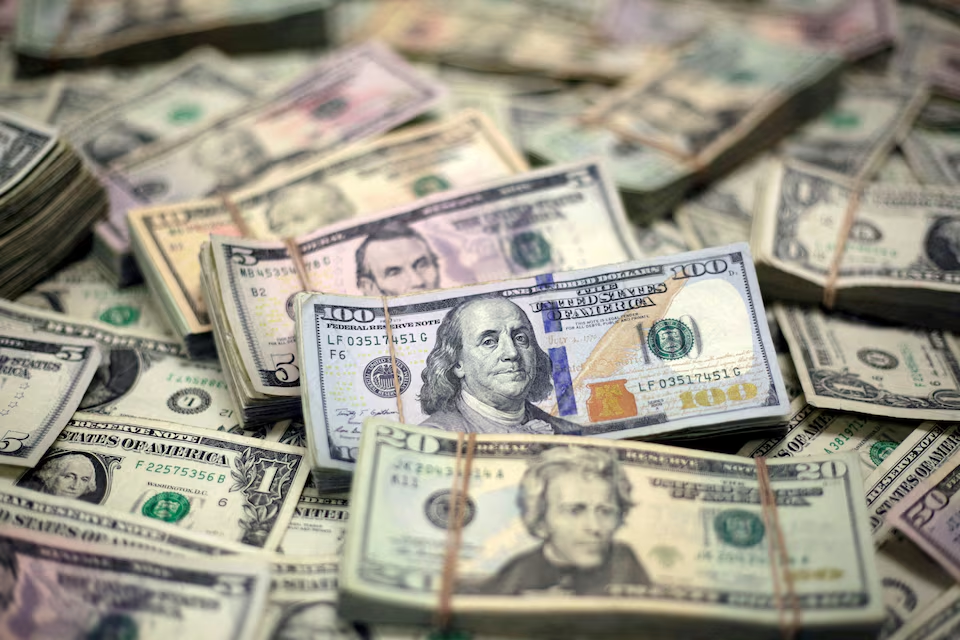The dollar jumped to a seven-week high on Friday after data showed that U.S. employers added more jobs than expected in September, leading traders to pare bets that the Federal Reserve will cut rates again by 50 basis points at its November meeting.
Nonfarm payrolls increased by 254,000 jobs last month. Economists polled by Reuters had forecast payrolls rising by 140,000 positions.
The unemployment rate also unexpectedly slipped to 4.1% from 4.2% in August.
It is a “blockbuster payrolls report by any measure. I think a no-landing scenario for the U.S. economy has suddenly become far more plausible,” said Karl Schamotta, chief market strategist at Corpay in Toronto.
“Rate cut expectations are being pulled back and the expectation now would be for a Federal Reserve that treads far more cautiously in easing policy,” Schamotta said.
Improving economic data and more hawkish comments from Fed Chair Jerome Powell on Monday, in which he pushed back against expectations of continuing hefty rate cuts, has led traders to reduce bets on a 50-basis-point reduction at the Fed’s Nov. 6-7 meeting.
Those odds fell further after Friday’s data. Traders are now pricing in only an 8% chance of a 50-bps rate cut, down from around 31% earlier on Friday and from 53% a week ago, the CME Group’s FedWatch Tool shows.
The dollar index reached 102.65, the highest since Aug. 16, and is on track for its best weekly percentage gain since September 2022.
The euro slipped to $1.0959, the lowest since Aug. 15.
The dollar gained to 148.80 yen , the highest since Aug. 16 and is on track for its best weekly percentage gain against the Japanese currency since 2009.
Welcome to Macro Matters, I’m Peter Devlin.
The dollar has also been boosted this week by safe haven demand on concerns about widening conflict in the Middle East.
Supreme Leader Ayatollah Ali Khamenei said on Friday that Iran and its regional allies will not back down. Iran raised the stakes when it fired missiles at Israel on Tuesday, partly in retaliation for Israel’s killing of Hezbollah secretary general Sayyed Hassan Nasrallah.
Sterling fell to $1.3070, the lowest since Sept. 12.
Bank of England Chief Economist Huw Pill said on Friday the British central bank should move only gradually with cutting interest rates, a day after the pound slumped 1% after Governor Andrew Bailey said the BoE could move more aggressively to lower rates.
The yen has weakened as investors adjust for a more dovish Japanese central bank at the same time as Fed expectations turn more hawkish.
New Japanese premier Shigeru Ishiba stunned markets this week when he said the economy was not ready for further rate hikes, an apparent about-face from his previous support for the Bank of Japan unwinding decades of extreme monetary stimulus.
